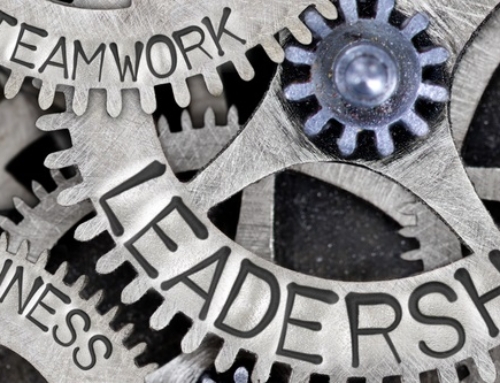Understanding and Facing the Four Fatal Fears
By Bill Clark
Psychologist Maxie Maultsby believed that there are four fatal fears that hold us back from facing the variety of challenges we encounter in our lives.
They are:
- The fear of Failure
- The fear of Being Wrong
- The fear of Rejection, and
- The fear of Being Emotionally Uncomfortable
In order to be successful in both our professional lives and our personal lives, I believe it’s imperative that we accept that these fears—one or all of them—exist in all of us, AND that we learn how to conquer them head on, and with confidence.
Typically, people face their fears by pushing themselves into the opposite side of the fear.
For example, to deal with the fear of failure, they think, I need to succeed. Instead, they must learn to shift their mindset of being the best to doing their best. This way if you can honestly say to yourself, I did my best but did not achieve my specific goal you won’t feel like you failed. You will feel like you achieved because you did your best. If you feel like you failed, you run the risk of never trying to reach that goal again.
To deal with the fear of being wrong, they think, I need to be right. For many, this can lead to total withdrawal. My advice is to accept what you know and what you don’t know. If you don’t have the unreal expectation that you must know everything, then you don’t have to fear being wrong. Instead, you can feel confident that you know and understand certain things, and not try to tackle areas that are not your expertise. The smartest and most powerful and successful people in the world do not know it all. They know some things very well, and most importantly, they know enough to depend on others who know the rest.
To deal with the fear of being rejected, they think, I need to be accepted. People with this fear often seek out friends, activities and social and work situations that offer unconditional acceptance. This can be very limiting and also very unhealthy. Not everyone has the innate ability to shrug off rejection, but by building self-confidence and higher self-esteem, eventually you will recover more easily from a negative response and not allow a perceived personal attack to linger.
To deal with the fear of being emotionally uncomfortable, they think, I need to be comfortable, and thus never allow themselves to be in situations where they might look foolish, or become embarrassed, or feel vulnerable…which is a mistake! The phrase “step outside of your comfort zone” doesn’t only apply to the physical. It can be applied to the mental just as equally. When we stretch ourselves, even bit by bit, situation by situation, we are bettering ourselves, growing ourselves. Life is uncomfortable…or at least filled with many uncomfortable moments. If you don’t accept that as a truth and find strength to be open to it, you’ll miss out on some of the very best parts of the journey.
Keep in mind that people who tackle extreme sports such as climbing the world’s tallest mountains quickly learn to overcome the fear of dying. They focus on the goal of reaching the summit.
Overseeing an organization requires leaders to have high self-awareness. That means that overcoming any fatal fear is an absolute must for effective leadership. Leaders of teams or organizations have to learn that conquering their own fears allows others to risk more and ultimately accomplish the collective mission or goal.
What I’ve come to learn over the years from my own experience, observations, and research is that leaders can lose their authenticity and their effectiveness if they don’t risk learning to overcome whatever their number one fear is.
Remember – we’re human. Every single one of us has fears – some more than others. It’s what you do about them that matters the most.





